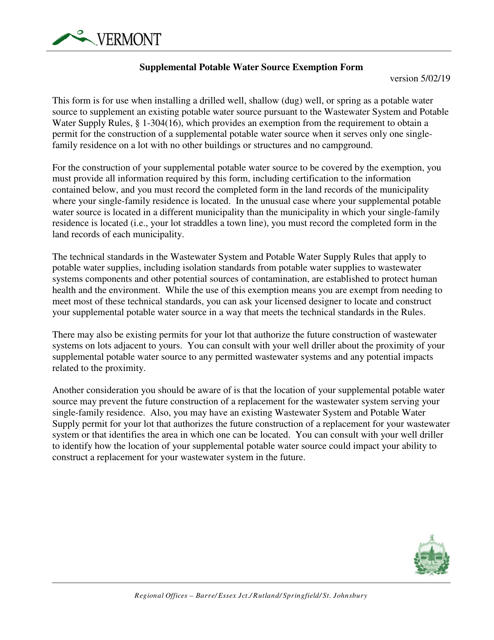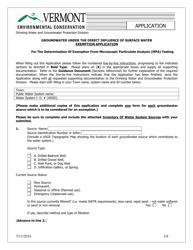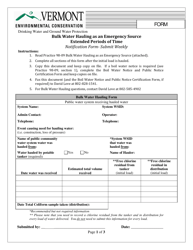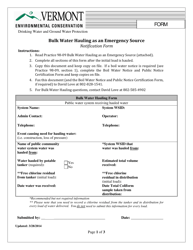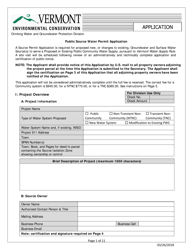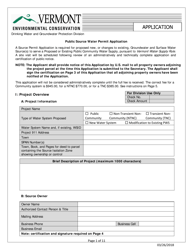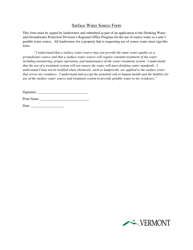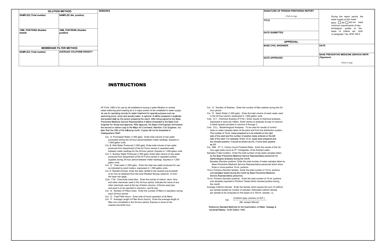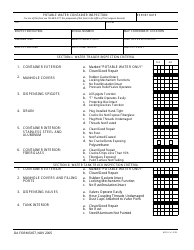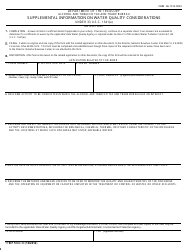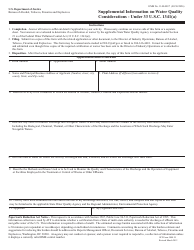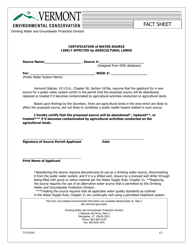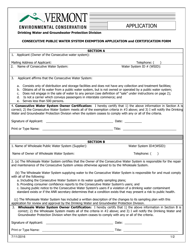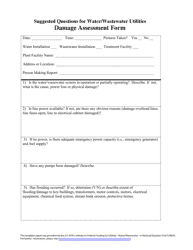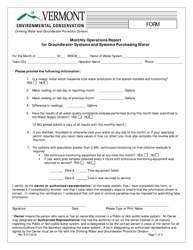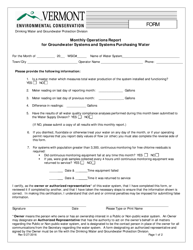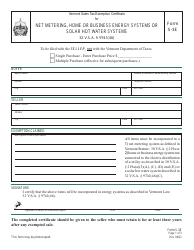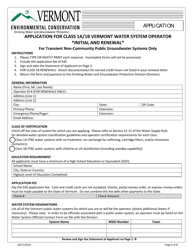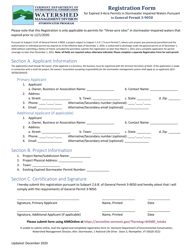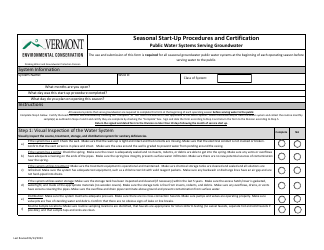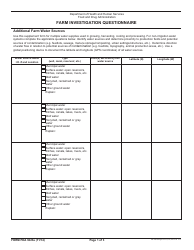Supplemental Potable Water Source Exemption Form - Vermont
Supplemental Potable Water Source Exemption Form is a legal document that was released by the Vermont Department of Environmental Conservation - a government authority operating within Vermont.
FAQ
Q: What is the Supplemental Potable Water Source Exemption Form?
A: The Supplemental Potable Water Source Exemption Form is a document used in Vermont to request an exemption from the requirement to have a supplemental potable water source for a wastewater system.
Q: What is a supplemental potable water source?
A: A supplemental potable water source is an alternative water source used for drinking and household purposes when the primary water source is contaminated or unavailable.
Q: Why would someone need to request an exemption from the requirement for a supplemental potable water source?
A: Someone may need to request an exemption if their wastewater system does not have the capacity to support a supplemental water source, or if they can demonstrate that an alternative source is available or unnecessary.
Q: How can someone request an exemption?
A: They can request an exemption by filling out the Supplemental Potable Water Source Exemption Form and submitting it to the appropriate regulatory agency in Vermont.
Q: Who is responsible for reviewing and approving exemption requests?
A: The regulatory agency in Vermont responsible for wastewater systems is typically responsible for reviewing and approving exemption requests.
Q: Is there a fee to submit the exemption form?
A: There may be a fee associated with submitting the exemption form, depending on the specific requirements of the regulatory agency in Vermont.
Q: What should someone do if they have questions about the exemption process or form?
A: They should contact the regulatory agency in Vermont for assistance and clarification.
Form Details:
- Released on May 2, 2019;
- The latest edition currently provided by the Vermont Department of Environmental Conservation;
- Ready to use and print;
- Easy to customize;
- Compatible with most PDF-viewing applications;
- Fill out the form in our online filing application.
Download a printable version of the form by clicking the link below or browse more documents and templates provided by the Vermont Department of Environmental Conservation.
